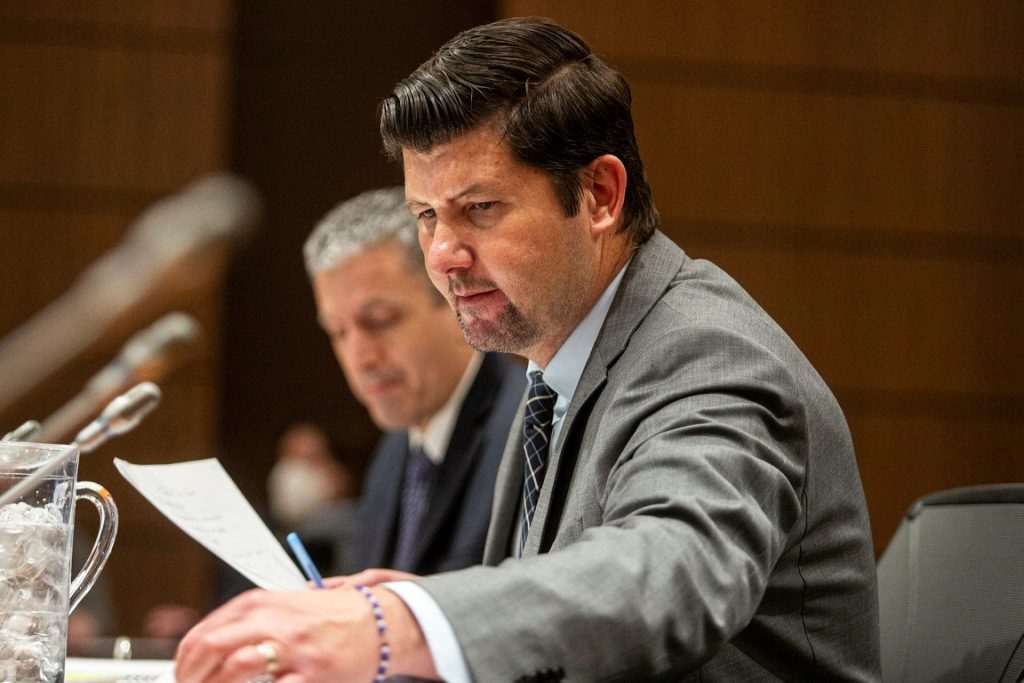Changes to rules for ‘national security’ contracts bypass competition and raise concerns of potential abuse, say procurement watchers

The federal government has expanded a powerful procurement tool, giving departments greater freedom to bypass competitive procurement rules by citing national security. While some observers say this may help speed up defence procurement, critics say it may do so at the cost of transparency, competition, and government accountability.
Last fall, the federal government broadened the application of the National Security Exception (NSE), a mechanism that frees the government from procurement obligations under Canada’s trade agreements on the grounds of national security.
The NSE can apply to any federal procurement the government deems related to national security, which typically includes defence, intelligence, public safety, environmental, and economic security.
The revision stems from changes to the Government Contracts Regulations (GCRs), which outline how government departments and agencies can award contracts. Those changes—which took effect on Dec. 16, 2024—allow contracts where the National Security Exception has been invoked to bypass Canada’s own rules that prioritize the competitive bidding process.
Before the regulatory changes, invoking an NSE meant a contract would be exempt from trade agreement obligations, but the government’s own procurement rules would still apply. Departments would have to both properly invoke an NSE and justify pursuing a directed procurement process if they wanted to avoid competition.
An NSE is considered “properly invoked” when it has been approved in a written letter by an assistant deputy minister, or a person of equivalent rank who is responsible for awarding the designated contract prior to the day on which the contract is awarded. That letter must explain the nature of the procurement, and what makes it a national security matter.
The changes expand the application of an NSE by establishing that the government no longer has to provide any supporting rationale or documentation. And the invocation of the exception alone is enough to justify the government’s decision to pursue a non-competitive procurement process.
According to the government, “the additional documentation required to establish the applicability of this exception based on the same facts has added unnecessary burden to the procurement process.”
Exempting NSE contracts from the regulations “will help support transparency and efficiency in federal procurement processes,” and “streamline and reduce the administrative burden on departments by no longer requiring separate processes for national security considerations under the CITT [Canadian International Trade Tribunal] Procurement Inquiry Regulations and the Government Contracts Regulations,” the amendment reads.
A Jan. 2 notice from the Treasury Board Secretariat to senior procurement officials reminds departments that procurement decisions—including those to use a non-competitive process—must be fully justified and documented.
“Departments continue to be required to maintain the government’s commitment to fairness, openness, and transparency in the bidding process for contracts. Where a NSE is properly invoked, departments are expected to continue to prioritize consideration of competitive procurement strategies, to the maximum extent possible, while protecting the national security interests of Canada,” it reads.

Federal procurement watchdog raises concern about changes to rules
On July 11, the Office of the Procurement Ombud (OPO) updated its 2022 study on the use of the NSE, warning that the latest changes could undermine transparency and accountability in federal procurement.
The office said the changes are “substantial, and deeply impact the rules that support fairness, openness, and transparency.” It noted that under the new rules, it is “reasonable to suggest that the quantity of procurements subject to an NSE and procured without competition will rise.”
Ombud Alexander Jeglic told The Hill Times in an Aug. 13 statement that his office “identified concerns such as the potential overuse of the NSE to circumvent established procurement rules, and a lack of transparency in its application” in that study.
The NSE “must be used judiciously and reserved only for procurements that are genuinely tied to national security concerns. Even then, it should be applied with care to maintain procurement fairness, openness, and transparency,” Jeglic said.
Jeglic said the government should have “clearer guidelines on its invocation, increased training for procurement officials, and enhanced transparency and oversight measures” to address these issues.
The OPO’s initial study concluded that reductions to fairness, openness, and transparency are justified when the procurement is tied to Canada’s national security interests, but suggested the application of the NSE should be targeted and transparent as opposed to a blanket approach.
Former ADM warns of ‘abuse’ of national security exception in procurement
With billions of taxpayer dollars pouring into procurement every year, abuse, overuse, or blanket application of the NSE could hurt government accountability and hinder competitive procurements, some observers say.

Marcia Mills, a partner at Fasken and co-leader of its national security group who specializes in government contracts, said government officials “will interpret the changes as permitting them to invoke an NSE, and otherwise ignore the obligations to consider whether competition is still a necessary and important element of their procurement process.”
“I think it’s a concern that the government officials will simply invoke NSE to overcome any other obligations they may have on a policy basis or otherwise, to compete for best value,” she told The Hill Times in an Aug. 19 interview.
Mills wrote in a February article that the move “is a significant shift with a potentially profound impact,” noting that prior to the changes, the exception and a competitive procurement process could often co-exist.
“This amendment seems a bridge too far by allowing Canada to set aside essential public interests such as government transparency and accountability that were previously examined through a sole source justification process requiring a balancing of competing interests,” Mills wrote.
“It is particularly disconcerting in the face of the ArriveCan investigations, and the reports of the Auditor General and Office of the Procurement Ombud, all of which highlight the importance of open, fair, transparent and competitive processes to ensure government accountability in its purchasing decisions,” she said.
“The NSE has the potential to be abused,” according to Alan Williams, a former assistant deputy minister of materiel at the Department of National Defence.
“Invoking the NSE is a very, very, very powerful tool to bypass competition. It is essentially unchallengeable so the government should make sure that it’s only used when absolutely necessary, and should ensure that there are processes in place [for accountability].”
The CITT has the authority to review procurement complaints by potential suppliers alleging that the federal government violated free trade agreement rules when procuring goods or services. However, the Tribunal has been required to dismiss procurement complaints involving properly invoked NSEs since 2019, when regulatory changes stripped away its authority to review the rationale or the fairness of the process.

The OPO study notes that this left suppliers with only one avenue of recourse, which is through a judicial review in federal and provincial courts which can be more costly and could take significantly more time.
Williams said while some procurements require keeping aspects of the process confidential, those choices must be justified to ensure they’re legitimate because invoking the NSE undermines the core principle of running a competitive procurement process.
He said in some cases, the government could still run a competition without disclosing sensitive details by writing procurement requirements at a high, performance-based level, and competitors would use their own data, which doesn’t have to be shared publicly.
Williams also argued that it “should be worrisome” to the public that “there is really no strong mechanism to challenge” the government’s decisions to deem a procurement a national security matter since 2019 rule changes prevent the CITT from reviewing such contracts.
“It’d be useful if a government put in place processes by which it could be challenged and really ensured that it’s legitimate,” Williams said.
In a 2024 report by the House Defence Committee, MPs recommended that “Canada update the defence procurement process to ensure that the use of the NSE automatically triggers additional oversight by independent agencies.”
“We also discovered that unlike the United States, we have no additional oversight powers triggered by the decision to sole-source and rush procurement through the National Security Exception,” reads the report, adding that this lack of oversight contributed to Canada’s failed first attempt to purchase F-35 fighter jets in the early 2000s, provoking criticism that the procurement process had been inappropriately run, and that cost estimates were inaccurate.
In its response to the committee, the government pointed at safeguards such as the GCRs which includes an obligation to solicit bids. However, given the changes to the GCRs there is no longer an obligation to solicit competitive bids for those contracts where an NSE is invoked.

New rules can help speed up defence procurement
Some experts argue that while the regulatory changes can help the federal government streamline and speed up defence contracts through directed contracts, the trade-off for that would be reduced transparency and accountability when it comes to contracts issued with an NSE.
Philippe Lagassé, associate professor at Carleton University whose research focuses on defence policy and military procurement, said reinforcing the NSE rule could speed up and streamline decisions without having to worry as much about the legal risks.
“If the government wants to spend a lot of money quickly and to spend it in a more directed fashion to bolster Canadian sovereignty, then we might have recourse to that instrument. I think it is an important one in our toolbox, and giving the cabinet more ability to make these types of decisions is important,” he said.
Lagassé added that while the government still has the obligation to ensure transparency and accountability, moving faster means taking more risks, and direct involvement of parliamentarians would provide stronger checks and balances.
“The best approach would be to have parliamentary committees look into uses of the NSE more regularly. You can either give that to the House Committee on National Defence, you could set up a joint standing committee that would look specifically at defence spending and procurement as we ramp up defence spending. You could potentially give those parliamentarians security clearance to be able to do their work more effectively,” he explained.
Lagassé said there are enough internal layers of oversight shared by multiple departments, and that the current defence procurement system is “highly risk averse and not fit for purpose anymore.”
“At the end of the day it is always a question of trade-offs. If we want procurement to go faster and we want to take greater risk, then you do need mechanisms like this. There are decisions that the government makes in the national interest. They may not be transparent, open, or competitive. You simply have to be able to justify that in certain cases.”
ikoca@hilltimes.com
The Hill Times






 LICENSING
LICENSING PODCAST
PODCAST ALERTS
ALERTS













